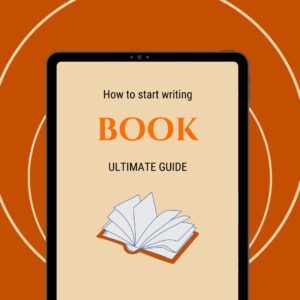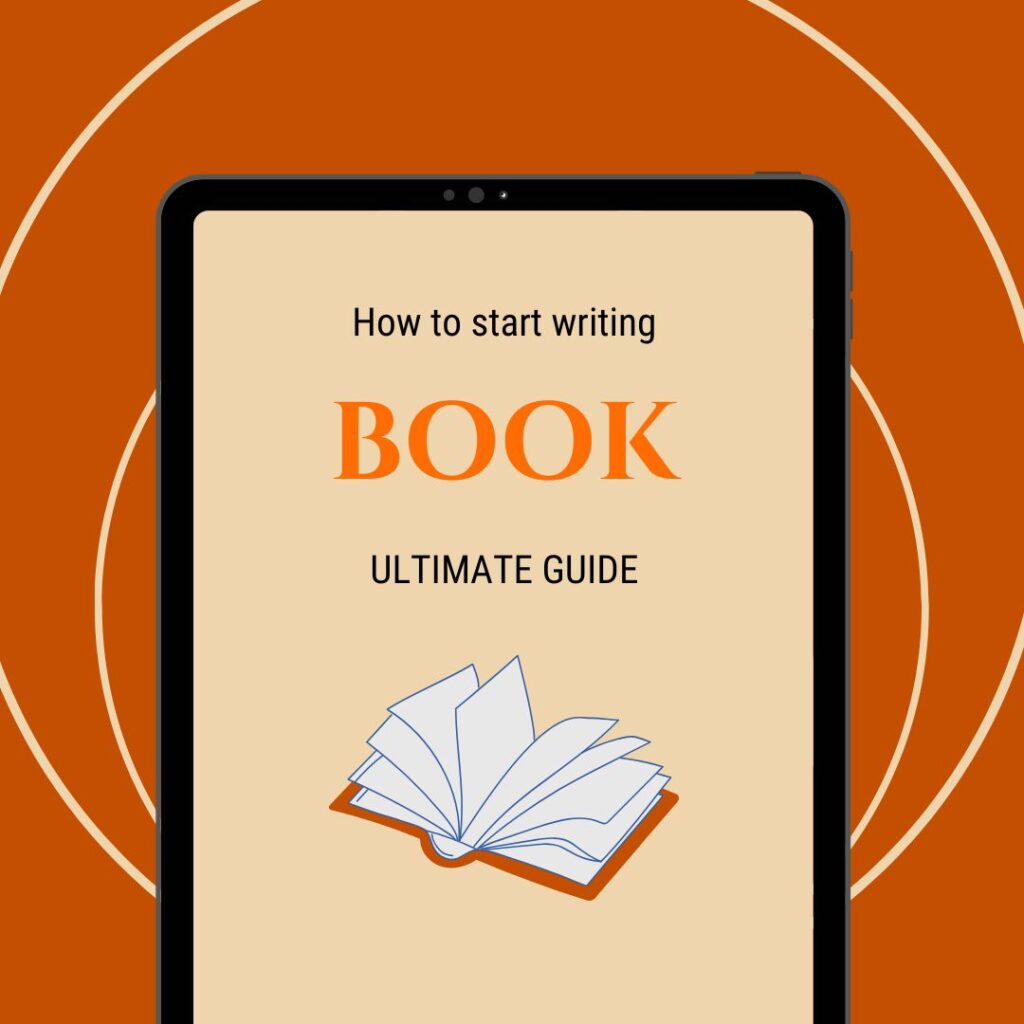How to start writing a book
Preparing to Write a Book
Before embarking on the journey of writing a book, it is crucial to understand the underlying motivation driving this creative process. Starting a book is not merely about putting words on paper; it is about conveying a message, sharing a story, or expressing oneself. By delving deep into your motivation, you can lay a solid foundation for your writing endeavor.
Decide What Type of Book You Want to Write
Choosing Genre – Fiction or Non-Fiction?
When beginning the book-writing process, one of the initial and crucial decisions you need to make is selecting the genre that best aligns with your writing style, interests, and target audience. Here’s how to decide:
- Fiction: If your imagination thrives on creating captivating narratives and compelling characters, fiction might be the right path for you. Choose from a myriad of literary genres such as romance, thriller, horror, science fiction, fantasy, or mystery.
- Non-Fiction: If you prefer writing factual content, sharing your expertise, or narrating real-life experiences, non-fiction genres like biography, self-help, history, or memoir might be more suitable.
Understanding the nuances of each genre can help you carve a distinctive voice in the literary landscape and cater to the preferences of your readers.

Table of Contents
Finding Inspiration and Coming up with an Idea for Your Book
Finding Inspiration
Every book begins with a spark of inspiration, a seed of creativity that grows into a fully-fledged story. Here’s how you can find the inspiration to kickstart your writing journey:
- Engage in Creative Stimulus: Surround yourself with art, music, nature, or other creative mediums that fuel your imagination.
- Brainstorm Book Ideas: Set aside time to brainstorm ideas, jot down random thoughts, explore unique concepts, and let your mind wander freely.
- Seek Original Ideas: Strive to create something fresh and innovative that resonates with your vision while captivating the readers.
Coming up with an Idea for Your Book
- Mind Mapping: Use visual tools like mind maps to organize your thoughts, connect ideas, and structure the core concept of your book.
- Story Inspiration: Draw inspiration from personal experiences, conversations, historical events, or even dreams to weave a narrative that is both authentic and engaging.
By honing your ability to find inspiration and craft compelling ideas, you lay a solid foundation for your book that resonates with your creative vision.
Developing Characters and Plot
Character Development
Characters are the heart and soul of any story, breathing life into the narrative. Here’s how you can effectively develop characters:
- Character Creation: Build well-rounded characters with distinctive traits, backstories, motivations, and arcs.
- Character Profile: Create detailed profiles for your characters, outlining their personalities, flaws, goals, and growth throughout the story.
Building Plot
A captivating plot keeps readers hooked and drives the narrative forward. Here are key aspects of building a compelling plot:
- Story Arc: Outline the trajectory of your story, including the beginning, middle, and end, to create a cohesive and engaging narrative.
- Plot Structure: Develop a clear plot structure with rising action, climax, and resolution to maintain tension and captivate readers till the last page.
By focusing on character development and plot construction, you set the stage for a well-crafted and immersive storytelling experience in your book.
The Writing Process
1. Creating an Outline for Your Book
Before you dive into writing your book, it is essential to create a structured outline that acts as a roadmap for your narrative journey. An outline helps in organizing your thoughts, maintaining coherence, and staying focused on your storyline. Follow these steps to craft an effective book outline:
- Writing a book outline begins with deciding on the key plot points, character arcs, and major events that will drive the narrative forward.
- Start with a detailed overview of your story, highlighting the central conflict, main characters, and the setting of your book.
- Divide your outline into chapters or sections, outlining the major plot developments and character interactions in each segment.
- Ensure that your outline captures the overall flow of the story, depicting the beginning, middle, and end of your book.
- Use subheadings to organize your ideas, allowing for a clear and structured outline that guides you throughout the writing process.
2. Starting the First Draft
Once you have a comprehensive outline in place, it’s time to embark on the journey of writing the first draft of your book. Here are some tips to get started:
- Begin by setting aside dedicated time for writing the first draft to maintain consistency and momentum in your storytelling.
- Write without inhibitions, allowing your creativity to flow freely without worrying about grammar or structure in the initial stages.
- Focus on getting your ideas on paper, fleshing out the plot points, dialogues, and character developments as they come to you.
- Embrace imperfection during the first draft, understanding that revisions and refinements will come in the subsequent editing stages.
- Stay true to your outline but also be open to spontaneous ideas that may arise during the writing process, enhancing the richness of your narrative.
3. Overcoming Writer’s Block
Writer’s block is a common hurdle that many authors face during the writing process. Here are some strategies to break through this creative barrier and reignite your inspiration:
- Overcoming writer’s block begins with understanding the root cause of your stagnant creativity. Take a break, go for a walk, or engage in a different creative activity to refresh your mind.
- Experiment with different writing prompts, exercises, or techniques to stimulate your imagination and prompt new ideas.
- Create a conducive writing environment that fosters productivity and minimizes distractions, allowing you to focus solely on your storytelling.
- Seek feedback from fellow writers, join writing groups, or attend workshops to gain insights and encouragement from the writing community.
- Remember that writer’s block is a temporary setback, and with perseverance and determination, you can push through this phase and continue writing.
4. Editing and Revising Your Draft
Once you have completed the first draft of your book, the next crucial step is editing and revising to refine your manuscript. Here’s how to approach this stage effectively:
- Begin the editing process by reviewing your manuscript for structural coherence, plot inconsistencies, and character development.
- Proofread your work meticulously to correct grammatical errors, spelling mistakes, and punctuation issues that may detract from the readability of your book.
- Seek feedback from beta readers or professional editors to gain valuable insights and suggestions for enhancing the quality of your writing.
- Focus on revising the flow of your narrative, tightening the plot, and strengthening character motivations to ensure a compelling and engaging story.
- Embrace the editing and revising process as an opportunity to polish your manuscript and refine your writing style, creating a final draft that is ready for publication.
By following these steps and staying committed to the writing process, you can navigate the challenges of bringing your book to life and fulfilling your aspirations as an author. Remember that writing a book is a journey that requires dedication, creativity, and perseverance, but the end result is a rewarding accomplishment that showcases your storytelling prowess to the world.
FAQs for How to Start Writing a Book
Why is it important to have a clear idea for your book before starting to write?
Having a clear idea for your book helps provide direction and focus for your writing process. It enables you to stay on track and develop a cohesive narrative.
What are some ways to overcome writer’s block when starting to write a book?
There are several strategies to overcome writer’s block, such as taking a break, engaging in creative exercises, changing your writing environment, or seeking inspiration from other sources.
How do I decide on the genre of the book I want to write?
Consider your interests, reading preferences, and the type of story you want to tell. Experiment with different genres to find the one that resonates with you the most.
Is it necessary to create detailed character profiles and plots before beginning to write a book?
While some authors prefer to have detailed character profiles and plots, others may adopt a more organic approach to writing. The key is to find a method that works best for you.
What tools or software can help in the book writing process?
There are various book writing software options available, such as Scrivener, Microsoft Word, Google Docs, and Ulysses, which can aid in organizing your thoughts and structuring your book.
Conclusion
Starting to write a book can be a rewarding but challenging endeavor. By understanding the importance of preparation, finding inspiration, and working through the writing process step by step, you can bring your book idea to life. Remember that each writer’s journey is unique, so it’s essential to find what works best for you and stay motivated throughout the creative process. Happy writing!
Discover marketing services, interviews & publishing tools at SharingStories.


